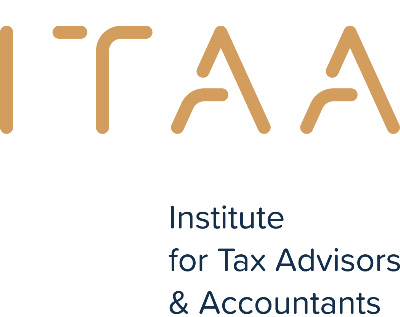Feature story
European Commission proposes new supply chain due diligence rules
The proposal for corporate sustainability due diligence (CSDD) was presented by the European Commission (EC) on 23 February. It sets out a corporate due diligence duty to identify, prevent, end, mitigate and account for adverse human rights and environmental impacts in the company’s own operations, its subsidiaries and their value chains.
In practice, the new proposal will require the companies within its scope to:
- integrate due diligence into policies
- identify actual or potential adverse human rights and environmental impacts
- prevent or mitigate potential impacts
- end or minimise actual impacts
- establish and maintain a complaints procedure
- monitor the effectiveness of the due diligence policy and measures
- publicly communicate on due diligence
Formally, SMEs (as defined by the EU) do not fall under the directive’s scope. Only companies with over 500 employees and a net turnover over EUR 150 million worldwide will be affected. Two years after the new rules start applying, additional rules will also be extended to other limited liability companies with over 250 employees and a net turnover over EUR 40 million worldwide, in sectors with a high risk of human rights violations or harm to the environment.
However, SMEs may be exposed to some of the costs and burden through business relationships with companies in scope as large companies are expected to pass on demands to their suppliers. Hence, supporting measures will be necessary to help SMEs build operational and financial capacity. Companies whose business partner is an SME are also required to support them in fulfilling the due diligence requirements, if such requirements would jeopardize the viability of the SME. Moreover, the value chain of the financial sector does not cover SMEs that are receiving loan, credit, financing, insurance or reinsurance. Read more
EU developments
European Parliament
ECON debates with Commissioner McGuinness on SMEs’ inclusion in sustainability reporting
The hearing took place on 10 February. Its purpose was to help inform the Parliament’s work on its draft position on EC’s proposed corporate sustainability reporting directive (CSRD), prepared by MEP Pascal Durand (RE/France).
The Commissioner underlined that EC proposes to include listed SMEs in CSRD’s scope, but noted that proportionality is key and therefore a simplified SME standard will be devised. Non-listed SMEs, which are not directly included in the proposal’s scope, would be able to use the SME standard on a voluntary basis.
However, MEP Angelika Niebler (EPP/Germany), among a few others, expressed concerns about the CSRD’s impact on SMEs that are still struggling with COVID challenges. MEP Durand, however, argued that SMEs that do not prepare for sustainability reporting risk missing out on financing.
International developments
The role of gigabit connectivity in accelerating SME digitisation and resilience
The impact of COVID-19 has been global and indiscriminate, Irina Varlan, the Managing Director of GigaEurope, writes in her article to EURACTIV. The current situation requires us to think, plan, and operate differently. While it touches us all, the direct impact on businesses and individuals differs – notably the disproportionate impact on SMEs, and on those who rely on them. Connectivity and a willingness to incorporate new digital solutions will enable businesses, especially SMEs, to survive and thrive in the future. Varlan emphasizes the need for a comprehensive ‘SME ecosystem’ approach to support SMEs’ uptake of digital technologies and means of doing business. Read more
Accountancy Europe publishes paper on supply chain due diligence assurance
The paper, written in collaboration with EGIAN, explains what supply chain due diligence is and how supply chain assurance works.
Accountancy Europe interviewed its members from smaller sized accounting networks to understand how they help businesses to manage supply chains.
It is based on discussions around market practices with three expert representatives. The interviews show that accountancy firms, including small and medium-sized accountancy networks and associations, are increasingly prepared to review the sustainability of supply chains. The paper also considers what is needed for reliable and robust assurance on the supply chain, including:
- common standards and methodologies for high quality assurance
- the qualities, expertise, capabilities and skills assurance service providers need
- ethical requirements, including independence standards
The paper reveals a market trend for professional accountants, from firms of all sizes, to support businesses with the application of due diligence requirements. Read more
Accountancy Europe responds to EC consultation on simplifying SME listings
Accountancy Europe has provided its feedback on EC’s initiative to revamp EU’s SME listing rules. We call on the EC to, in particular, initiate an ambitious SME prospectus reform to make these lighter, shorter and easier for SMEs to produce whilst balancing with the need to provide investors with sufficient key information. Read more
Accountancy Europe issues its views on audits of LCEs
Accountancy Europe has responded to the International Auditing and Assurance Standards Board’s (IAASB) exposure draft (ED) on a new standard for audits of less complex entities (LCEs). The response:
- presents overall support for the initiative, noting that there is an urgent need for a global LCE auditing standard
- makes specific recommendations to improve and simplify the proposed standard
- encourages the IAASB to engage with national standard setters, regulators and audit oversight bodies
- reminds of the importance of ensuring the ISAs’ scalability
Accountancy Europe publishes overview of key provisions in Council’s VAT rates agreement
Following the Council’s agreement on the EU VAT rates reform in December 2021, Accountancy Europe published on 14 February a paper outlining the key features of the compromise. It provides a comprehensive overview of how the Council agreement differs from the original EC proposal, and from the status quo.
These changes are important for SME accountants to be aware of. They are particularly relevant to SMEs that operate cross-borders within the EU single market. Read more
SME Fund 2022-2024: new EUR 47 million scheme to provide financial support to SMEs is now accepting applications
The recently launched EUR 47 million EU fund scheme that offers partial reimbursement of the costs of intellectual property (IP) diagnostic services and trade mark, patent and design applications – SME Fund 2022-2024 – is gaining momentum. SMEs across the EU can apply now and save up to EUR 2,250. IP representatives, including accountants, can apply to the SME Fund on behalf of their SME clients.
So far, the SME Fund has received above 3,000 applications, of which 78% are from micro enterprises. Another highlight is that IP Scan requests are on the rise, with 274 in less than 2 months. SMEs are beginning to realise the benefits of an IP Scan when creating a business strategy.
Last year nearly 13,000 European SMEs benefitted from the first initiative of this kind.


